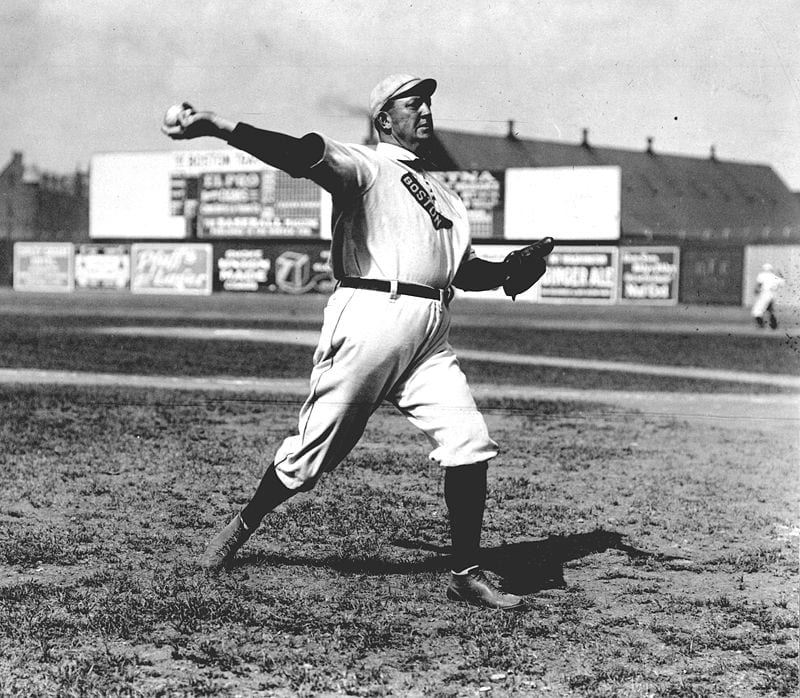It might be hard to believe if you’ve grown up with it all your life, but English is actually a pretty tough language to learn. You see, English has rules, bu it’s also got about 10 different exceptions to each of these rules, and you’d best believe you need to remember all of them. Plus, English at this point has borrowed words and structure from so many other languages that it’s hard to enforce a standard set of rules anyway. The result is a true mish-mash that makes zero sense, and these posts prove it.
15. Very punny
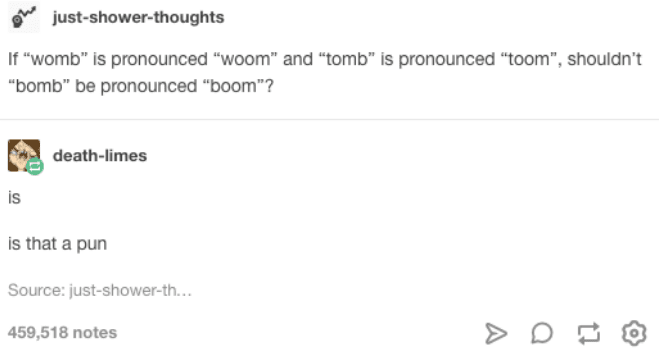
Photo credit: Tumblr
14. Do not you dare

Photo credit: Tumblr
13. It burns

Photo credit: Tumblr
12. Q

Photo credit: Tumblr
11. What have you done?

Photo credit: Tumblr
10. I’m looking at you, Australia
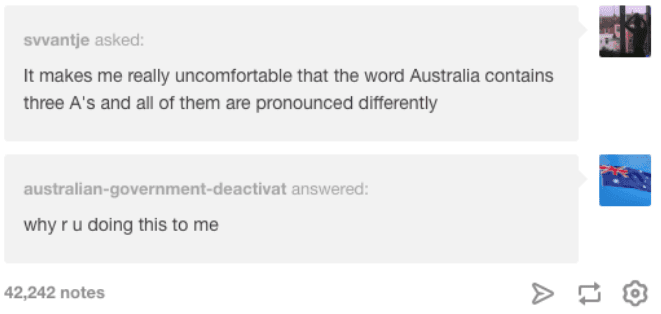
Photo credit: Tumblr
9. Potato
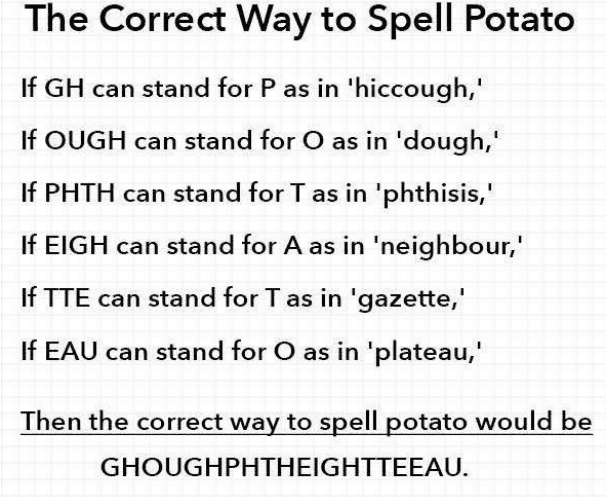
Photo Credit: Twitter
8. Why?!?

Photo credit: Tumblr
7. I object!
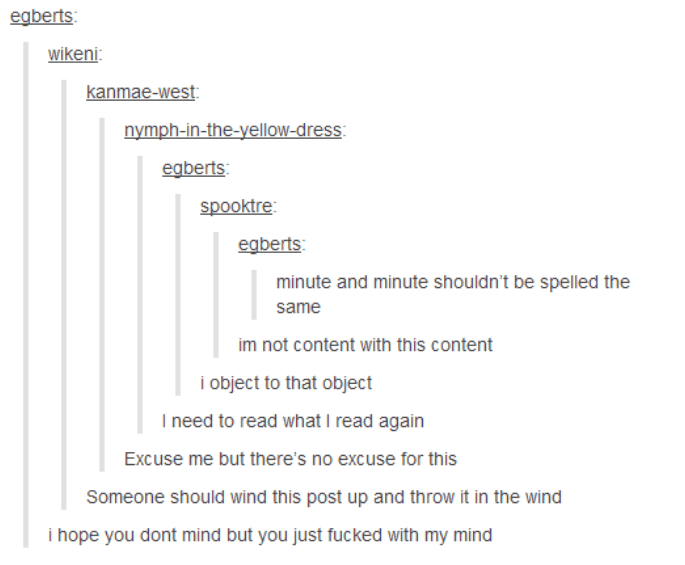
Photo credit: Tumblr
6. These can’t be real

Photo credit: Tumblr
5. Seven meanings
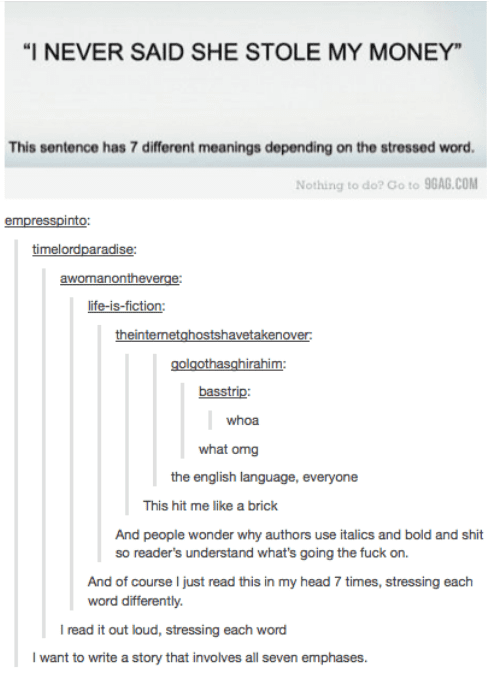
Photo credit: Tumblr
4. So confusing
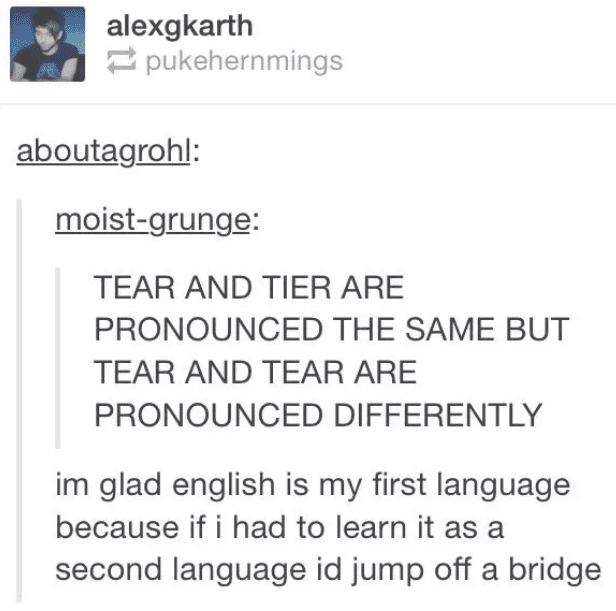
Photo credit: Tumblr
3. Will Smith

Photo credit: Tumblr
2. That that
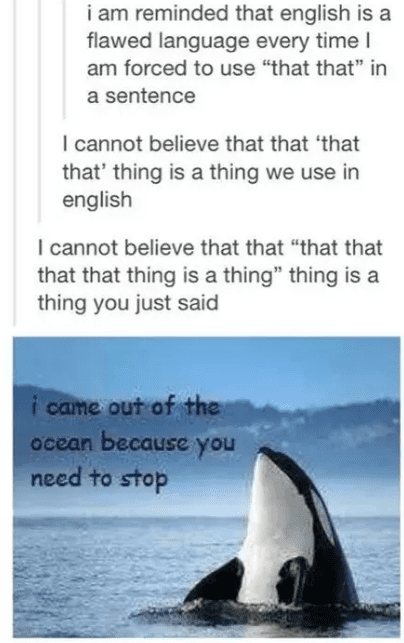
Photo credit: Tumblr
1. Just stop
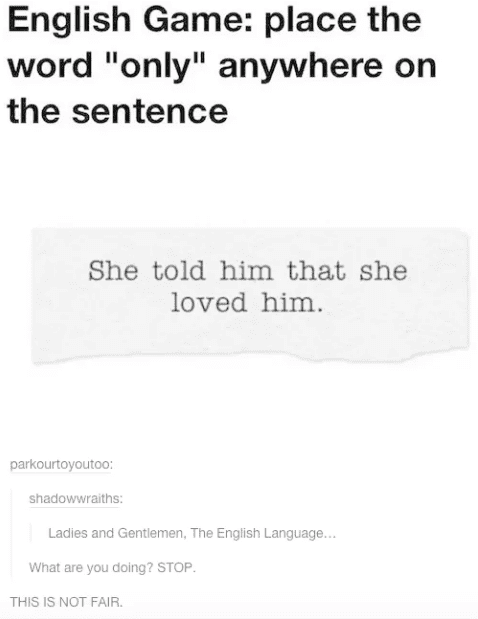
Photo credit: Tumblr
Who doesn’t love language jokes, right?
The post 15 Posts That Prove Just How Weird English Can Be appeared first on UberFacts.


